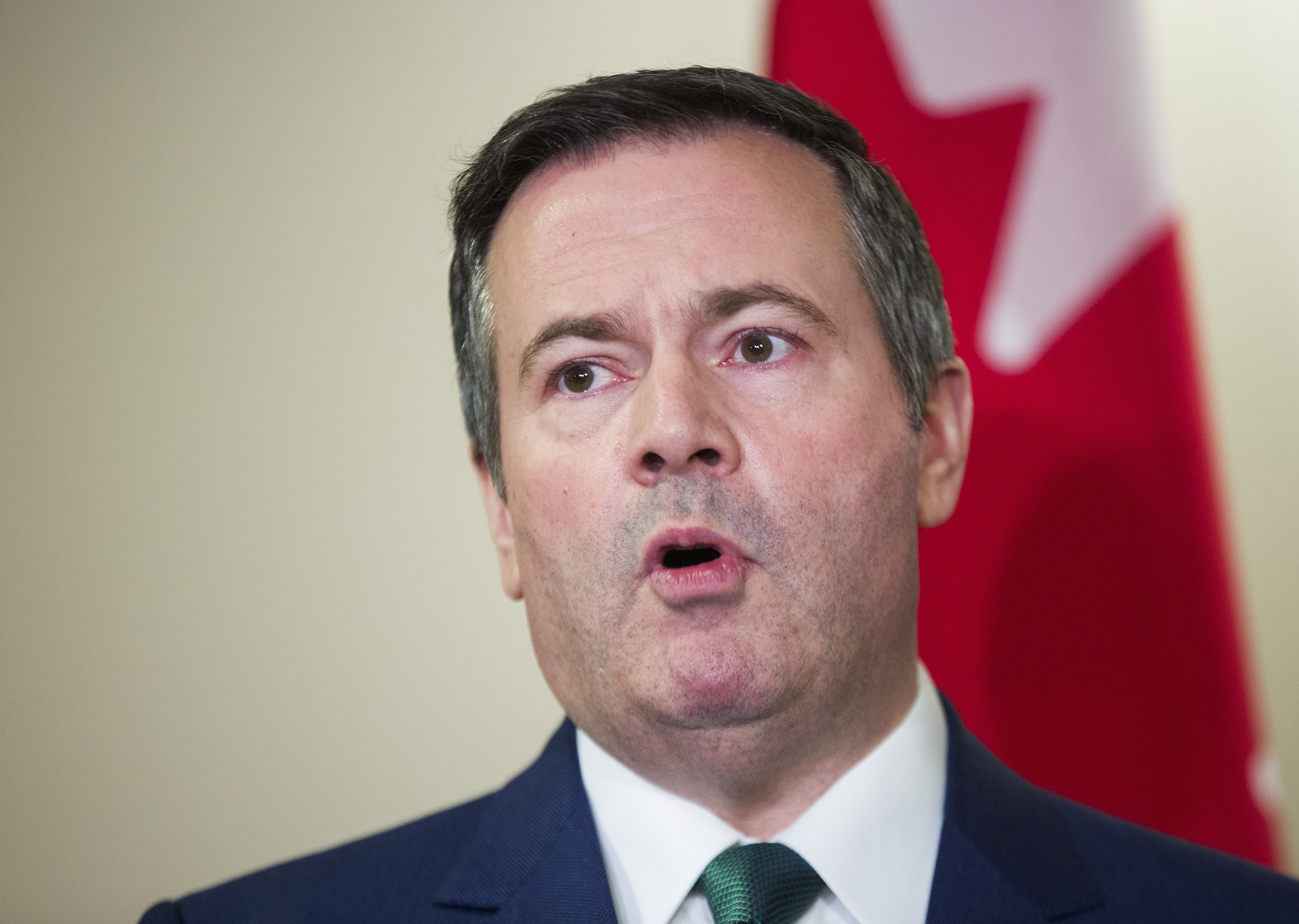Alberta Touts Iran Conflict as Reason to Be Optimistic About the Economy

Credit to Author: Kevin Maimann| Date: Thu, 16 Jan 2020 11:00:00 +0000
At a Sunday vigil where more than 2,000 people packed into an Edmonton sports centre to grieve the victims of the Ukrainian flight that crashed over Iran last week, Alberta Premier Jason Kenney said the crash marked one of the most tragic days in the history of the province.
Kenney said the passengers, among them at least 57 Canadian citizens and more than a dozen with ties to Alberta, were victims of a “chain of actions rooted in the all-too-human failure to resolve conflicts peacefully.”
The next morning on Twitter, he touted a potential upside to instability in the Middle Eastern country.
"One thing we see in the conflict this week in the Middle East is the huge advantage that Canadian energy has in terms of international security,” Kenney said in a video posted to Twitter Monday, in which he argues Alberta is "turning a corner" in terms of investor confidence.
It’s no secret that strife in oil-producing countries can be an economic boon to other oil producers like Alberta. When an international supplier reduces production for whatever reason, it creates a shortage of supply that can boost prices. Anticipation of violence leading to a shortage can do the same.
Oil prices have spiked in the past during the 1979 Iranian revolution and the 1990 Persian Gulf crisis, after the September 11, 2001 attacks, and during the 2003 U.S.-led invasion of Iraq.
But Lori Williams, a political scientist at Mount Royal University in Calgary, found Kenney’s comments insensitive, saying they seem to suggest suffering in Iran could benefit Albertans on some level.
“To one night express sympathy for the horror that people are undergoing as a result of this tragedy, and the next to say it’s good for Alberta’s economy, is tone deaf in the extreme,” Williams said.
“Whatever causes the fluctuations in international oil prices, it just doesn’t look good to appear to be either planning on or touting the benefits of conflict, of suffering amongst people in other parts of the world, being an advantage to Alberta,” Williams said. “It’s astonishing.”
Kenney’s press secretary Christine Myatt said the premier was expressing a sentiment he’s repeated in numerous speeches: that buying oil from Alberta is a safe and ethical choice.
Myatt said it’s impossible to say at this point whether an escalation of the U.S.-Iran conflict will change Alberta’s economic outlook. “But it does underscore the idea that Canadian energy is some of the best and most responsible in the world when you compare to those other jurisdictions that have conflict; they have lower environmental standards, they have lower human rights standards,” she said.
Kenney campaigned last spring on a promise of creating jobs, building pipelines, and boosting the economy, specifically the struggling oil and gas sector. After taking office, the United Conservative government launched a $30-million “war room,” dubbed the Canadian Energy Centre, to pump out pro-oil messages.
In its first budget, released in October, it posits three possible scenarios for oil prices. In a best-case, “High Oil Prices scenario,” oil jumps to US$77 a barrel by 2022-23. “Geopolitical tensions on the rise, particularly in the Middle East, could result in supply disruptions that would put upward pressure on oil prices,” the document says.
Payman Parseyan, past president of the Iranian Heritage Society of Edmonton and a former press secretary for Alberta’s United Conservatives, took no issue with the premier’s statement.
“Insensitive or not, it’s a reality,” he said.
While his community “lost a lot of friends” in the crash and he does not want to see more people killed, he supports Alberta nonviolently advancing its economic interests in the region.
“I don’t want to see us expand our oil and gas sector at the cost of innocent lives,” Parseyan said. “However, if sanctions limit the ability of Iran to export their oil, and we could have those potential customers purchasing Alberta oil, sign me up.”
But oil price expert Bessma Momani, a political science professor at the University of Waterloo, said that’s not how the oil market works.
Escalations in the Middle East would have set off major price spikes 10-15 years ago, but that’s no longer the case.
“It’s almost been built into the price already. And I don’t think there’s going to be a lot of fluctuation anymore. Those days are long gone,” Momani said.
So while the recent violence has bumped prices up—which could help some Alberta-based companies in the short term—Iranian oil has already been mostly offline since the U.S. reimposed sanctions last spring, and further violence is not likely to keep driving prices higher.
“It’s a temporary increase,” Momani said. “By dollar terms, by the time it actually makes its way to government coffers, it might be miniscule.”
As for the notion that Alberta can convince Iran’s customers to switch to its oil, Iran’s market is mostly regional with its biggest buyers in Turkey, India, China, and Japan. Momani said those countries have numerous nearby sellers to turn to that would make more economic sense—namely Russia, Saudi Arabia, United Arab Emirates, Qatar, and Nigeria.
“They’re not going to turn to Canada,” Momani said.
Follow Kevin Maimann on Twitter.